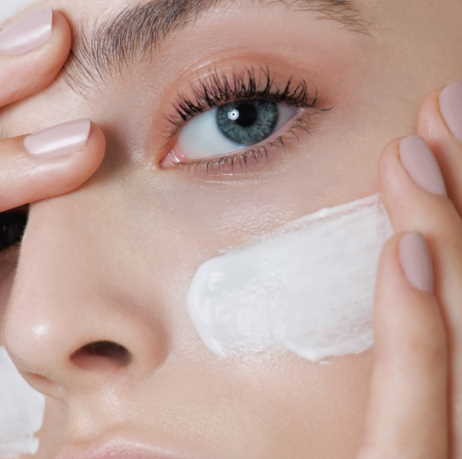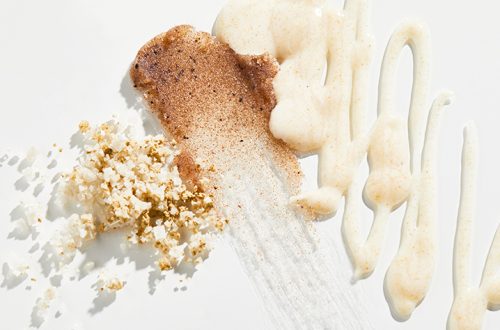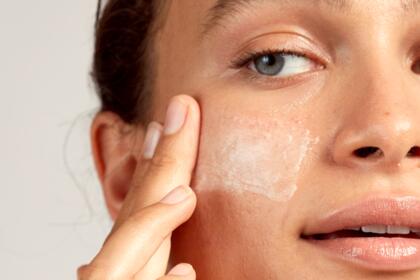
Nutrition for beautiful and healthy skin
The way you put skincare products and eat your diet reflects in the appearance of your skin. Your diet and ingredients used on the skin can have both positive and negative effects. Here we tell you which foods you should eat or avoid and which vitamins and minerals are important for your skin.
What are the vitamins for the skin?
Vitamin A for the skin
Studies show that Vitamin A (retinol), applied as a cream, slows down the ageing process of the skin and reduces wrinkles. Thanks to retinol, the skin generally becomes more resistant. Particularly if you spend a lot of time in the sun, retinol is a good choice because it can improve the appearance of sun-damaged skin.
Vitamin A for skin for the inside
From the inside: Your body needs at least 700-850 micrograms of vitamin A per day. A medium-sized carrot contains the vitamin A that you need daily. Always be sure to consume foods containing vitamin A with a little fat, as vitamin A is one of the fat-soluble vitamins.
Vitamin C for the skin
It is another vitamin used to take care of the inside and outside of your body. It helps your body make collagen, which is important for the functioning of your skin. This is because collagen fibres work together to form a framework that gives tension to the skin, ensuring its elasticity and firmness.
In addition, vitamin C acts as an antioxidant to counter oxidative stress. Oxidative stress is associated with faster ageing of the skin. This makes vitamin C an important ally in the fight for healthy skin.
Vitamin C plays an important role in protecting against UV rays and associated wrinkles. As with retinol, studies show that it reduces skin ageing processes triggered by the sun. So look for vitamin C in your skin creams or serums.
Vitamin C for the skin for the inside
You should be consuming between 95 and 110 milligrams of vitamin C per day. This is the amount contained in 100 grams of broccoli for example.
Biotin for the skin
Biotin supports your skin from the inside out. It contributes to the growth and maintenance of blood cells, nervous tissue, sebaceous glands and is therefore essential for your skin. Biotin is one of the most well-known vitamins associated with exterior beauty, as it also helps maintain healthy hair and nails.
Biotin for the skin for the inside
It only takes 40 micrograms per day to supply biotin to your body. You can cover half of it with muesli containing 50 grams of oatmeal and 30 grams of walnuts.
Niacin for the skin
Niacin, also known as vitamin B3, is increasingly popular in skincare. Like nicotinamide, it is contained in many beauty products and promotes the renewal of skin cells. This is very important because the top layer of our epidermis needs to be rebuilt every four weeks. The nicotinamide in creams reduces the ageing process of the skin, such as wrinkles and pigmentation spots. Besides, it also increases the elasticity of the skin.
Niacin for skin for the inside
When it is absorbed, niacin helps maintain normal skin. To cover your daily needs, you need to consume 16 milligrams per day. You can find niacin mainly in mushrooms or legumes. One serving of mushrooms (100 grams) contains 5.2 milligrams of niacin.
Vitamin E for the skin
Like vitamin C, vitamin E is one of the antioxidants and is, therefore, a powerful ally for the protection of your skin. Cigarettes, UV rays, or pollutants such as heavy metals increase oxidative stress and put a strain on your skin. Due to its ability to protect cells from oxidative stress, vitamin E is frequently used in skin creams. Along with vitamin C, vitamin E is used in cosmetic creams and serums. Studies have already confirmed an anti-ageing effect. The possible positive effects on the skin barrier and atopic dermatitis have also been mentioned.
Vitamin E for skin for the inside
When you consume vitamin E through food, it also helps protect your cells from oxidative stress. You can meet your daily vitamin E requirement ( 12-15 milligrams ) with just two tablespoons of sunflower oil. [29] Just add it to your salad or porridge.
Other nutrients
Pantothenic acid and riboflavin are also important vitamins in the diet for good skin. Riboflavin helps maintain normal skin and mucous membranes and protects cells from oxidative stress. The pantothenic acid (vitamin B5) is present in its preliminary form, dexpanthenol in many skin creams.




